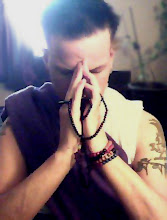What is the Noble
Truth of Suffering? Birth is suffering, aging is suffering, sickness is
suffering, dissociation from the loved is suffering, not to get what one wants
is suffering: in short the five categories affected by clinging are suffering.
There is this Noble Truth of Suffering: such was the vision,
insight, wisdom, knowing and light that arose in me about things not heard
before.
This Noble Truth must be penetrated by fully understanding
suffering: such was the vision, insight, wisdom, knowing and light that arose
in me about things not heard before.
This Noble Truth has been penetrated by fully understanding
suffering: such was the vision, insight, wisdom, knowing and light that arose
in me about things not heard before.
[Samyutta Nikaya LVI, 11]
The First Noble Truth with its three aspects is: "There
is suffering, dukkha. Dukkha should be understood. Dukkha has been
understood."
This is a very skilful teaching because it is expressed in a
simple formula which is easy to remember, and it also applies to everything
that you can possibly experience or do or think concerning the past, the
present or the future.
Suffering or dukkha is the common bond we all share.
Everybody everywhere suffers. Human beings suffered in the past, in ancient
India; they suffer in modern Britain; and in the future, human beings will also
suffer. What do we have in common with Queen Elizabeth? - we suffer. With a
tramp in Charing Cross, what do we have in common? - suffering. It includes all
levels from the most privileged human beings to the most desperate and
underprivileged ones, and all ranges in between. Everybody everywhere suffers.
It is a bond we have with each other, something we all understand.
When we talk about our human suffering, it brings out our
compassionate tendencies. But when we talk about our opinions, about what I
think and what you think about politics and religion, then we can get into
wars. I remember seeing a film in London about ten years ago. It tried to
portray Russian people as human beings by showing Russian women with babies and
Russian men taking their children out for picnics. At the time, this presentation
of the Russian people was unusual because most of the propaganda of the West
made them out to be titanic monsters or cold-hearted, reptilian people - and so
you never thought of them as human beings. If you want to kill people, you have
to make them out to be that way; you cannot very well kill somebody if you
realise they suffer the way you do. You have to think that they are
cold-hearted, immoral, worthless and bad, and that it is better to get rid of
them. You have to think that they are evil and that it is good to get rid of
evil. With this attitude, you might feel justified in bombing and
machine-gunning them. If you keep in mind our common bond of suffering, that
makes you quite incapable of doing those things.
The First Noble Truth is not a dismal metaphysical statement
saying that everything is suffering. Notice that there is a difference between
a metaphysical doctrine in which you are making a statement about The Absolute
and a Noble Truth which is a reflection. A Noble Truth is a truth to reflect
upon; it is not an absolute; it is not The Absolute. This is where Western
people get very confused because they interpret this Noble Truth as a kind of
metaphysical truth of Buddhism - but it was never meant to be that.
You can see that the First Noble Truth is not an absolute
statement because of the Fourth Noble Truth, which is the way of non-suffering.
You cannot have absolute suffering and then have a way out of it, can you? That
doesn’t make sense. Yet some people will pick up on the First Noble Truth and
say that the Buddha taught that everything is suffering.
The Pali word, dukkha, means "incapable of
satisfying" or "not able to bear or withstand anything": always
changing, incapable of truly fulfilling us or making us happy. The sensual
world is like that, a vibration in nature. It would, in fact, be terrible if we
did find satisfaction in the sensory world because then we wouldn’t search
beyond it; we’d just be bound to it. However, as we awaken to this dukkha, we
begin to find the way out so that we are no longer constantly trapped in
sensory consciousness.






No comments:
Post a Comment